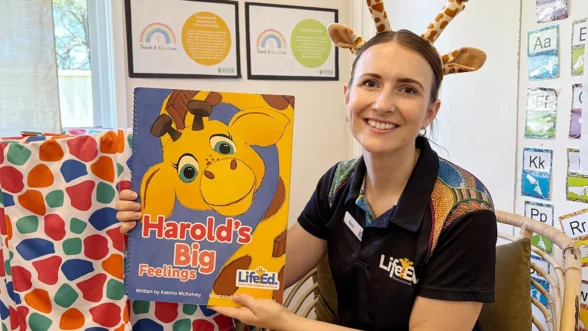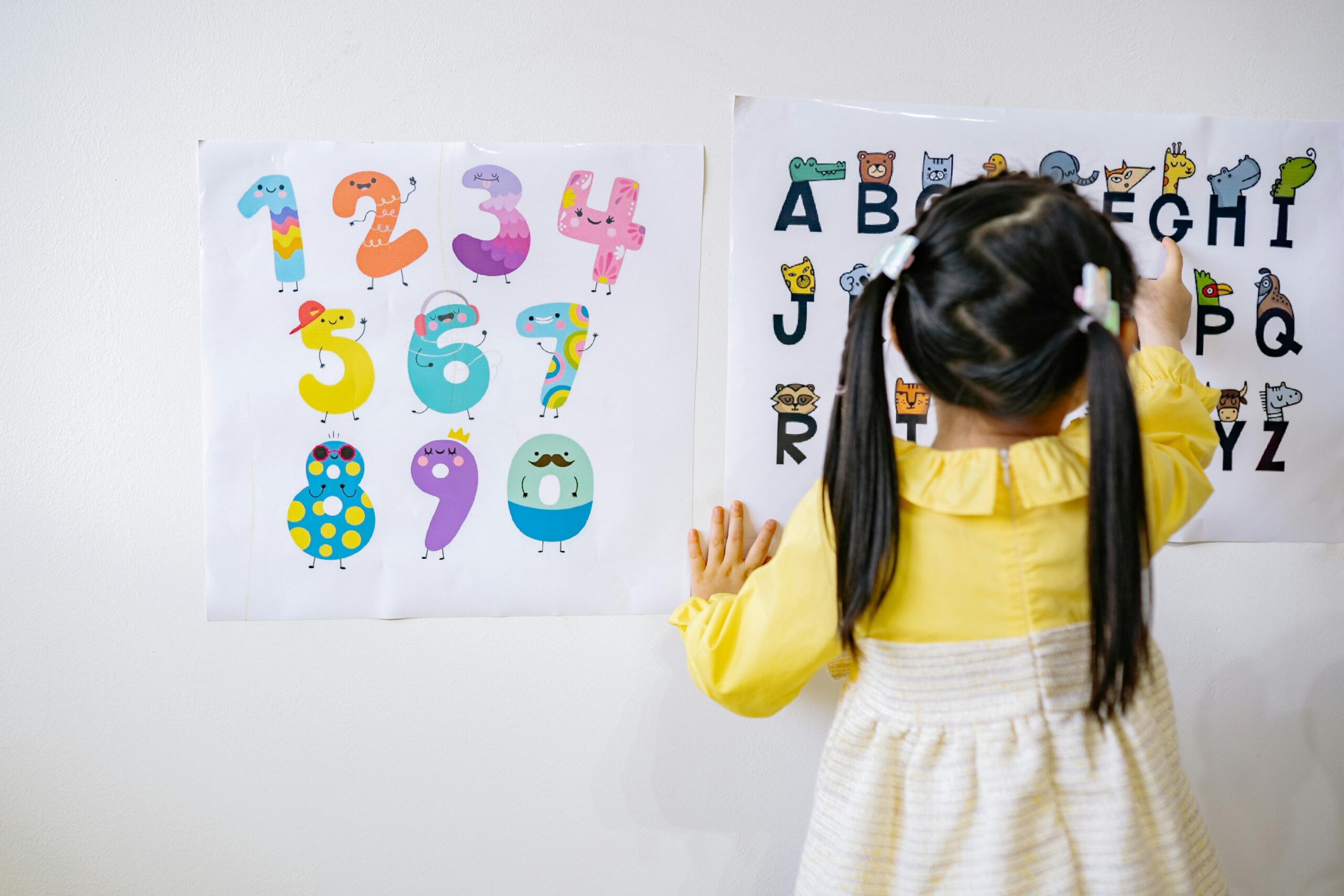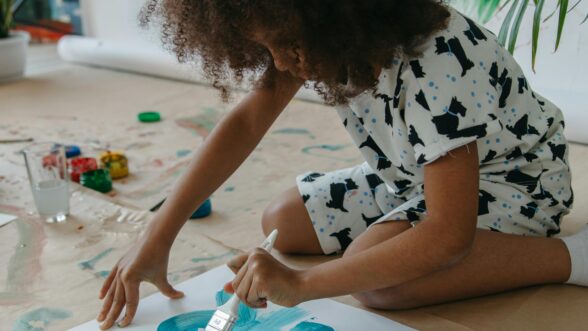
Education, Parenting Resources
How to Prepare your Child for School
25 November, 2026

Helping children build strong school readiness skills not only eases their transition into the classroom, but also sets them up for confidence and success from day one. As children grow through their pre-school years, they build the confidence and connection that help them take those first steps into “big school” with excitement rather than anxiety.
Every parent wants their child to start school feeling confident, curious, and ready to take on new challenges. The good news? Most of the important skills for the foundation year are already developing naturally through play and daily routines in the kindy years.
Educators talk about school readiness as more than early academics – it’s about building the social, emotional, and communication foundations that help children learn, participate, and connect.
Below are five key areas that help children feel secure and capable as they begin their school journey.
Confidence and Curiosity
Children who feel confident are more likely to approach new activities positively and keep trying when faced with challenges. This confidence may look like having a go at writing their name, joining in group play, or taking part in a new activity.
- Encourage your child to try new things, even if they make mistakes – it’s all part of learning.
- Praise effort over results (“You tried really hard to draw that letter!”).
- Ask open‑ended questions: “What do you think will happen if…?” to build curiosity and problem‑solving.
Confidence, paired with curiosity, lays the foundation for a lifelong love of learning.
Communication and Listening
School life involves lots of group time, instructions, and teamwork. Strong listening and communication skills help children understand routines and express their thoughts clearly.
Educators support this by reading stories, singing songs, and encouraging turn‑taking in conversation. At home, you can nurture these skills by:
- Sharing stories and asking your child to predict what might happen next.
- Giving simple two‑step directions (“Please put your shoes on and get your hat”).
- Encouraging eye contact and gentle conversation at family meals.
These behaviours foster focus, empathy, and the ability to follow instructions – core ingredients for settling confidently into school.
Turn‑Taking and Cooperation
In the foundation year of school, children learn how to work and play in bigger groups, where fairness and patience are important. Practising turn‑taking builds empathy and helps children recognise that everyone’s voice matters.
- Play board games or cooperative games at home.
- Model polite phrases such as “Your turn” and “Can I have a turn next?”
- Celebrate positive social behaviour – noticing when your child shares or waits patiently reinforces cooperation.
Help‑Seeking and Persistence
Asking for help is a sign of confidence, not weakness. Children who feel comfortable approaching a teacher or peer when they need support adapt more easily to classroom life.
- Role‑play situations: “What would you do if you couldn’t open your lunchbox?”
- Remind your child that everyone needs help sometimes – even grown‑ups!
- Encourage persistence. If something’s tricky, try together, then celebrate small wins.
These experiences teach resilience and problem‑solving, both key to thriving at school.
Early Learning Habits
The first year of school isn’t about being “ahead” – it’s about being ready to engage, concentrate, and participate. Simple activities can help your child feel familiar with early learning experiences:
- Fine motor skills, such as drawing, threading beads, or using scissors, strengthen the hand muscles needed for writing.
- Recognising their name: Practice spotting it on labels, lunchboxes, or artwork.
- Pre‑literacy: Point to words in storybooks and talk about letters or sounds.
- Pre‑numeracy: Count everyday items such as snacks, steps, or toys to build number confidence.
These fun, low‑pressure activities give children a sense of “I can do this,” easing their transition into structured learning.
The School-Ready Mindset
More than anything, children starting school need a sense of belonging and self-confidence. When they can manage emotions, take turns, listen, persist, and communicate, they step into school feeling ready – not just to learn, but to enjoy learning.
In our early learning environments, Edge educators gently guide children through these milestones every day, building confidence, connection, and curiosity in every play experience. These early foundations ensure your child begins the foundation year with the skills and self‑assurance they need to flourish.

